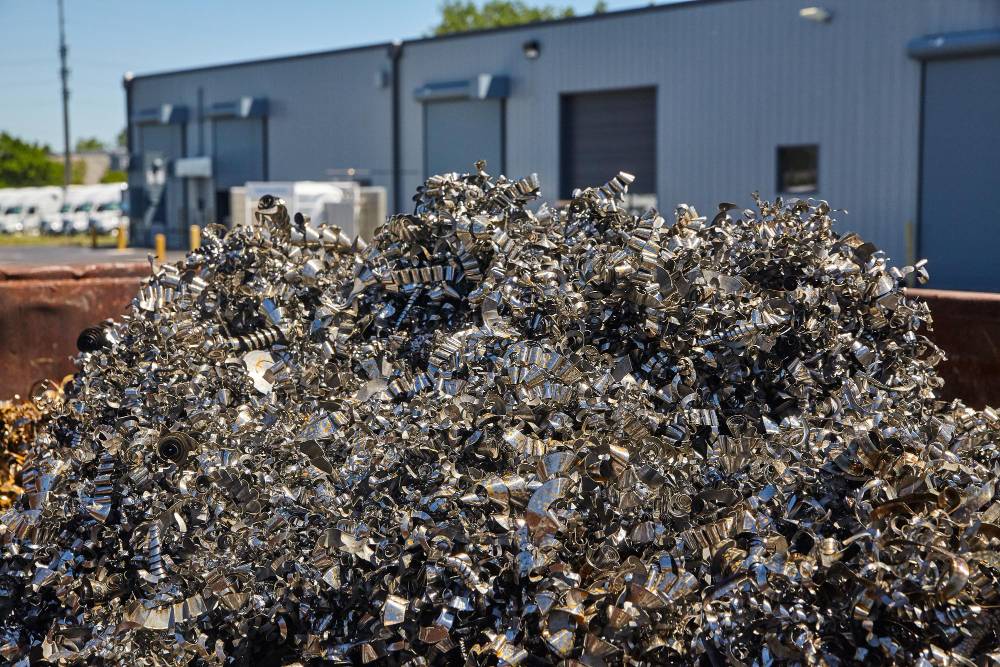

APR 17, 2025
Many of us are familiar with the common metals we encounter on a daily basis, such as steel, aluminum, iron, and copper. However, not many people are aware of another group of metals known as refractory metals. These metals are less common, but they play a key role in high-tech and industrial applications.
Refractory metals are a class of metals that are extraordinarily resistant to heat, wear and tear, and corrosion. They are characterized by high melting points, exceptional thermal conductivity, excellent strength at elevated temperatures, and high density. The most common refractory metals include tungsten, tantalum, niobium, rhenium, and molybdenum. Recycling these metals offers a wide range of environmental and economic benefits that cannot be ignored.
In today’s blog post, we look into the environmental and economic benefits of recycling refractory metals. If you’re looking for top-paying scrap metal buyers, look no further than RCM Recycling. Keep reading to learn more about the benefits of recycling refractory metals.
This is perhaps the biggest advantage of recycling refractory metals. The extraction and processing of refractory metals involve energy-intensive methods. Mining operations disturb large land areas and consume a lot of water and fossil fuel resources. In some regions, mining causes soil degradation, habitat loss, and releases hazardous byproducts. Therefore, recycling these metals minimizes the need for continued mining. This reduces the environmental footprint of production processes. For example, recycling tungsten scrap can reduce energy usage by more than 70% compared to extracting it from ore.
Unlike the common scrap metals, refractory metals are not abundant, and many of them are sourced from regions with limited supply chains. Some are classified as strategic materials due to their importance and the risks associated with supply disruptions. Recycling refractory metals from manufacturing scrap, used tools, or discarded products extends the usability of available materials.
Recycling refractory metals can also result in cost savings for manufacturers. Secondary raw materials are less expensive to process than primary ores. The infrastructure for metal recovery, such as scrap sorting, cleaning, and refining, can be optimized for high efficiency, especially when metals are recovered in large volumes.
For companies that generate their own metal scrap, such as those involved in metal fabrication or machining, in-house recycling or partnering with recyclers can lower material procurement costs and reduce waste disposal fees. In some cases, recycled refractory metals offer the same purity and performance as virgin materials. If you’re a company that uses refractory metals in production, it’s a good idea to partner with a trusted scrap metal recycling company and lower your production costs.
Recycling refractory metals contributes to the development of a circular economy. Instead of following a linear model of extraction, use, and disposal, recycling promotes the reuse of valuable materials across multiple product lifecycles. A circular economy supports long-term sustainability and reduces the burden on landfills and natural ecosystems. If you have unwanted materials containing these metals, look for nearby scrap metal buyers and make your contribution towards supporting a circular economy.
RCM Recycling is a leading scrap metal recycling company in Newnan, GA that helps you turn your scrap metals into cash. We accept a wide range of metals, including refractory metals such as tungsten, tantalum, molybdenum, niobium, and rhenium. Our mission is to reduce the environmental effects of waste, conserve resources, and keep recyclable materials out of the landfills. Apart from scrap metal, we accept junk cars, old appliances, electronics, and household items. Whenever you’re looking for dependable scrap metal buyers, trust the team at RCM Recycling.